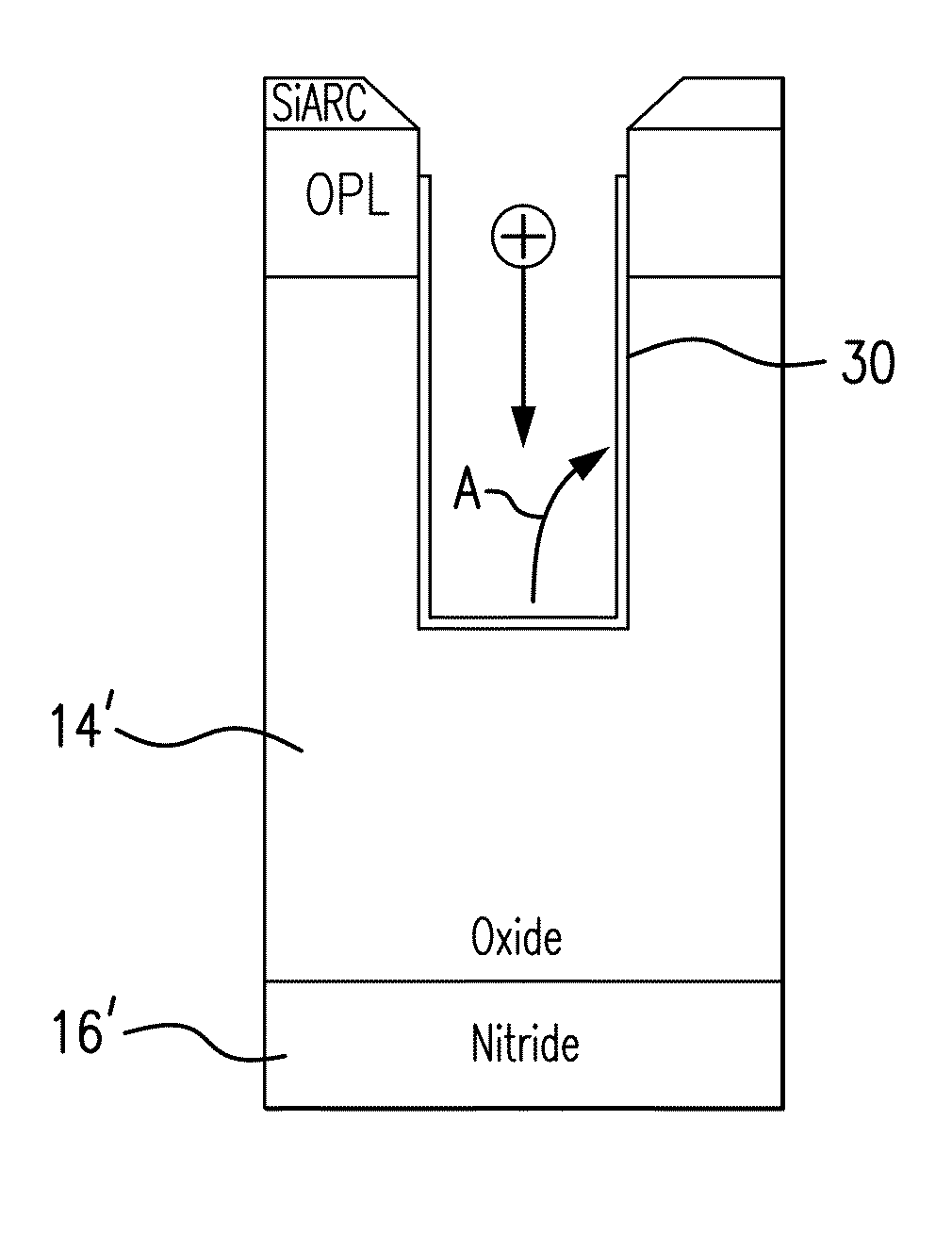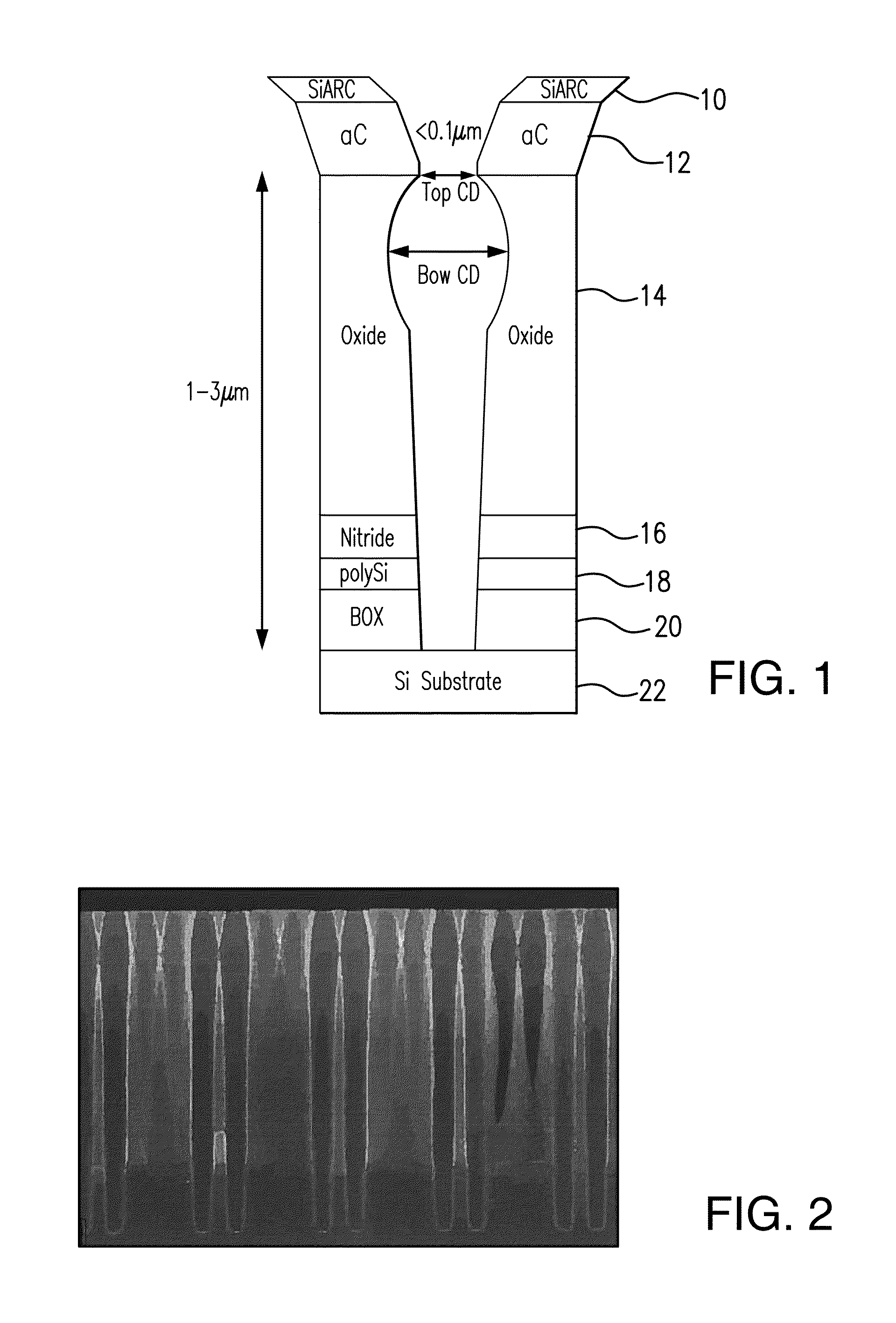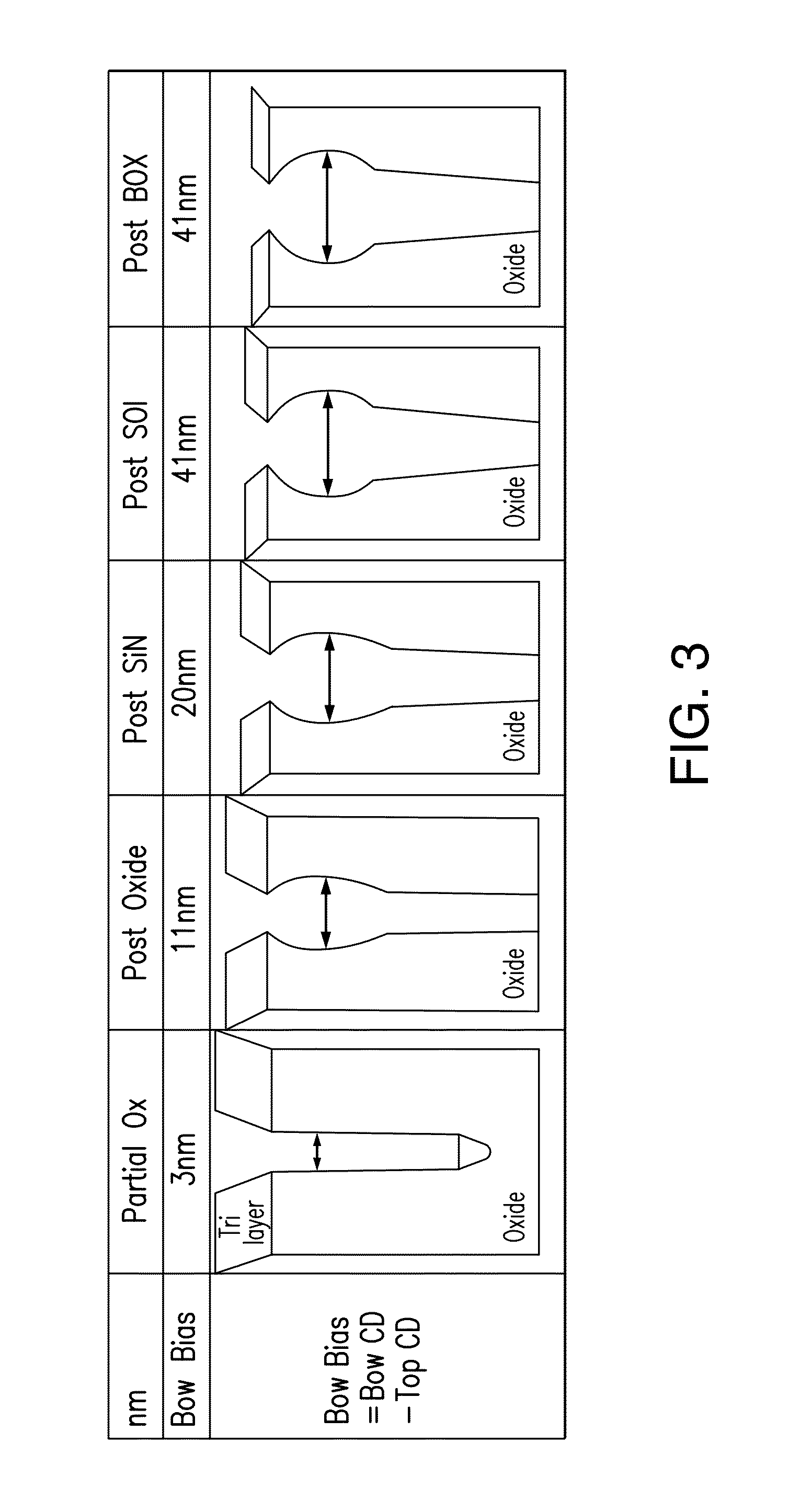Reducing bowing bias in etching an oxide layer
a technology of oxide layer and etching, which is applied in the field of electronic devices manufacturing, can solve the problems of increasing the bowing profile of the sidewall, reducing the diameter of the trench and even the etch stop, and conventional techniques failing to recognize or address the bowing increase, etc., and achieves the effect of increasing the sidewall passivation and reducing the bowing profil
- Summary
- Abstract
- Description
- Claims
- Application Information
AI Technical Summary
Benefits of technology
Problems solved by technology
Method used
Image
Examples
Embodiment Construction
[0014]Techniques disclosed herein include systems and methods for reducing bowing bias in an oxide layer during etching of multi-layered deep trenches using targeted over passivation of sidewalls. In plasma etching, the substrate is placed on a substrate holder of a process chamber, and gases (forming the process chemistry) are supplied to the process chamber. In addition, power (e.g. RF power) is applied to one or more electrodes to form a plasma.
[0015]A deep trench mask open process involves etching through various layers of a given substrate stack. The stack can include layers such as: SiARC (Silicon anti-reflective coating), amorphous carbon (aC), oxide, nitride, polysilicon, buried oxide, and a silicon substrate. Oxide etch is mainly an ion-assisted process. Ions are bombarded onto a reactive surface of the oxide layer leading to an anisotropic etch. To protect sidewalls from etching, fluorocarbon based gases are used for passivation.
[0016]Bowing primarily occurs in an upper pa...
PUM
 Login to View More
Login to View More Abstract
Description
Claims
Application Information
 Login to View More
Login to View More - R&D Engineer
- R&D Manager
- IP Professional
- Industry Leading Data Capabilities
- Powerful AI technology
- Patent DNA Extraction
Browse by: Latest US Patents, China's latest patents, Technical Efficacy Thesaurus, Application Domain, Technology Topic, Popular Technical Reports.
© 2024 PatSnap. All rights reserved.Legal|Privacy policy|Modern Slavery Act Transparency Statement|Sitemap|About US| Contact US: help@patsnap.com










